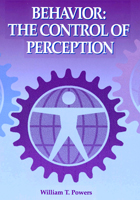| Home about PCT Presentation Order | |
|
|
South China Normal UniversityPresident Yan Zexian and Fan Dongping, Professors, Philosophy, South China Normal University; Zhang Huaxia, Professor, Philosophy, Zhongshan University. [From their paper Perceptual Control Theory in China, 2004] "Chinese scholars had some setbacks in studying Cybernetics. Just when Cybernetics came into being, the ideologists in former Soviet Union refuted it as "the brain mechanism" and threw it away. [As] the Soviet Union entered the post-Stalin age, and China was advocating the principle of "letting all flowers blossom and letting all schools of thought contend" in the areas of policy of science and art... there was a surging interest in the study of Cybernetics in Chinese academic circles. ...Most of the scholars conducted their studies in the fields of mathematics, computer science and automation engineering. In 1962 N. Wiener's Cybernetics was translated into Chinese, and in 1965 An Introduction to Cybernetics by W. R. Ashby was rendered. At this time the "Cultural Revolution" with the principle of "eliminating all," was approaching. During the ten years of "Cultural Revolution" the translation of any foreign academic works had to stop, and was not recovered until 1980s when the era of Reform and Opening to the Outside World came. In psychology, studies of psychoanalysis by Freud and Ronge flourished, but the studies of other schools were very limited. The circle of systems science, under the guidance of Qian Xuesen, Fellow of China Science Academy, paid more attention to the new disciplines in systems science; therefore, the so-called "new three theories," Prigogine's Dissipative Structure Theory, Haken's Synergetics and Eigen's Hypercycle Theory, became the hot points of study for the moment. As to the "old three theories" (general systems theory, information theory and cybernetics), Qian Xuesen categorized cybernetics or control theory in the field of "technology" and "engineering technology." He remarked on biological cybernetics: "The organism and human beings are so complicated that it will not be feasible to reduce them like this." Because of the ignorance and misunderstanding of theoretical cybernetics and biological cybernetics, there appeared in China, just like what Bill Powers and Cliff Joslyn had long noticed in America, a tendency: Engineering control theory was separated from biology whereas theoretical biology was separated from the mechanism of basic cybernetics. Therefore, it was not strange that the works by Powers and the school of PCT escaped the attention of the fields of psychology, biology and systems science in China for such a long time. The disciplinary division in the institutions of higher learning and academic research is not properly standardized. Researchers on complexity and systems science are found partly among philosophers, and partly among researchers engaged in the studies of systems engineering in colleges of management, and still partly in the field of physics, especially in the field of nonlinear physics. As to the source of the systems science, that is, the field of theoretical biology, however, we find few systems scientists. The exchanges among the systems scientists, professional or amateur, in different disciplines, — are even less. For this reason, in 2001, South China Normal University... got permission to enroll doctoral graduates in systems science and complexity, and also to establish a research center for systems science and systems management. The first task for us was to collect systematically the classical works on systems science. At the end of 2002, we found the book Behavior: Control of Perception by William T. Powers, and CSG's [Control Systems Group] website. After close reading of the book, we hold that Powers' PCT is a further development on the basis of Wiener's classical cybernetics, and with many innovations in theory and practice, is superior to the latter in the delicate illustration of the control mechanism scheme, in the creation of the new concept about purpose, that is, reference signal, in the hierarchy of the control of human perception, in its application in biology, computer science and cognitive science, and so on. It is closely connected with philosophical research, such as the research about epistemology and axiology. So we translated the book Behavior: The Control of Perception, and had it published. The main translators include Professor Zhang Huaxia and Professor Fan Dongping from South China Normal University, Professor Peng Jinan from South China University of Technology, Wang Dong, a lecturer from College of Foreign Studies of Jinan University, and Wang Minxuan, a graduate working toward his master degree in the Philosophy Research Institute of South China Normal University. Mr. Powers, the author, also gave patient guidance to the translation, even writing a prologue for the Chinese version and adding some related materials and an appendix about a brief introduction to the history of the development of cybernetics. This book, published by Guangdong Higher Learning Education Press, is the first one among the systems science and systems management series compiled by South China Normal University. We believe that the publication of the book will contribute a lot to the studies of PCT for the philosophers, the systems scientists, the cognitive scientists and psychologists in China."
|
| © 2004–2024 Living Control Systems Publishing |
|

